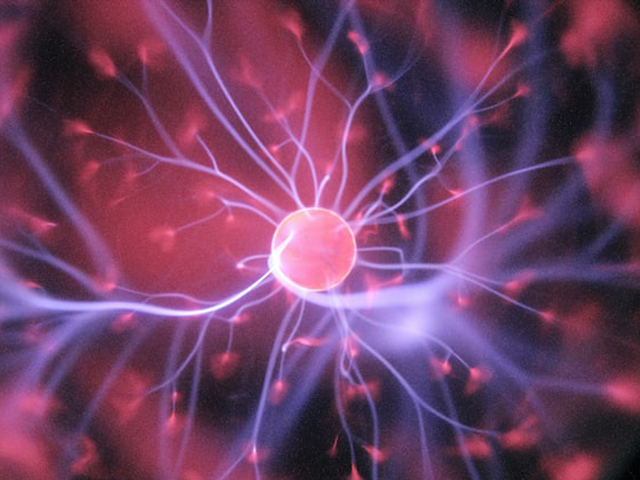
Science has changed the world for the better. It has led to improved healthcare, a better understanding of the universe around us, and the development of new technology like electric cars.
If you want to become a scientist, then you first need to know what makes a good one. It’s not easy becoming a scientist, after all. Knowing what makes a good one will make it easier for you to hone your skills and pick up the habits necessary to excel in your chosen discipline (i.e., biology or physics).
This post will tell you everything that makes a great scientist in the modern era.
Education
If you want to be a scientist, then you are going to need to have a good education. Companies that employ scientists expect them to have degrees. Try to go to a top university for physics in the UK, one that specializes in physics (or alternatively, biology if that’s your chosen discipline). The more educated you are, the more attractive you will be to employers. It’s also worth noting that getting a degree will help you to become a lot more experienced. It'll also help you to make friends who share your passion for science.
Curiosity
Curiosity is an essential characteristic. If you are not a naturally curious person, then science probably isn’t for you. Natural curiosity is what drives scientists to make new discoveries and achievements. If individuals like Einstein and Sir Isaac Newton were not curious, they would not have made the scientific advancements that they did. If you want to become a scientist, then you probably are curious, because it is a line of research and work that tends to attract people who’re born curious (and good learners).
Patience
Patience is essential. If you are not a patient person, then you will need to become one. Scientific discoveries and achievements are not made overnight. Sometimes, people work on things for decades before they’re ready to be released to the public. Thankfully, patience is not something you have to be born with. It’s something that can be learned. There are many courses available online that you can take in learning patience. You can also read online guides, and tutorials, and watch videos. Becoming more patient can be challenging but is possible. Patience will help you to be a better scientist.

Innovative
You need to be an innovative person, too. What makes science great is that even the most grounded and accepted theories can be overturned or at least worked on. If you are an innovative person, then you will be able to make your own theories and build your reputation as a scientist. However, if you are not innovative, then you will struggle to make theories (and build a reputation for yourself). Being innovative is really something you have to be born with. It’s not easy to learn how to become more innovative. You can still be a scientist without being innovative, it’s just that you’re more likely to be successful if you are.
Communication
No matter what area of science you plan on getting into, you need to be a good communicator. There is absolutely no way that you will be able to achieve success as a scientist if you are unable to communicate. You need to be able to communicate so that you can explain your ideas to people, discuss things, and get your point across. You also need to be a good communicator so that you can explain to employers why they should hire you when you are applying for jobs.
Detailed
You need to have an eye for detail. If you are not a detailed and meticulous person, then you need to learn to become one. Becoming more detailed is not that hard. All you have to do, usually, is just slow down. The reason most people today are not detailed is that they move too fast, never giving themselves time to think about things (and never thinking about things before they do them). Becoming more detailed will help you to become a better scientist. It’ll also instill confidence in those around you. If your colleagues or classmates know you think things through and do not act on emotion, then they will feel more confident working alongside you.
Critical Thinking
If you are not a critical thinker, then now’s the time to become one. Becoming a critical thinker will help you to become a much better scientist. The reason for this is simple: If you cannot view things critically, you will not know a bad idea when it’s staring you in the face. You need to be able to identify something’s advantages and disadvantages. People who are innovative also tend to be good critical thinkers. You can learn to be a better critical thinker if you are not one already.
Persistence
Persistence is essential. Some of the best scientific discoveries were made after years of hard work. If you give up easily, then you’ll never become a good scientist. In addition to being persistent, you also need to know when it’s a good idea to let an idea die. A lot of people make the mistake of holding onto bad ideas and obsessing over them. Hundreds of scientists would have been household names were it not for their obsession to let their careers die because they could not let go of bad ideas that they were obsessed with. Persistence is vital, but so too is the ability to identify a bad idea and let it go.
Confidence
Confidence is crucial too, especially if you want to become a leading scientist. You will need to present your ideas to people clearly and calmly. If you are an anxious person, then this might not be an easy thing for you to do. Confidence does not come naturally to a lot of people. More people are suffering from anxiety right now than ever before. There are courses you can take designed to help you to become more confident. It’s worth taking such a course if you struggle with your confidence.
Science can be a great line of work to get into. Scientists are well paid, respected, and have the power to change the way people think about the world around them. You will need to possess most of the traits listed here in order to become a good scientist.











